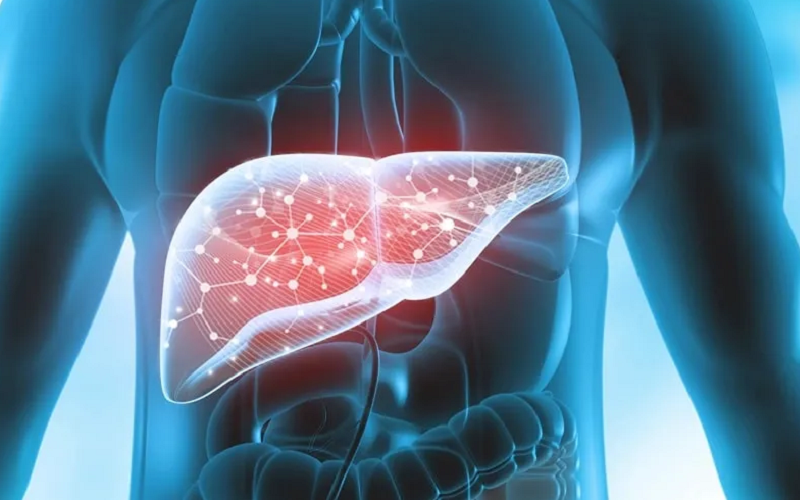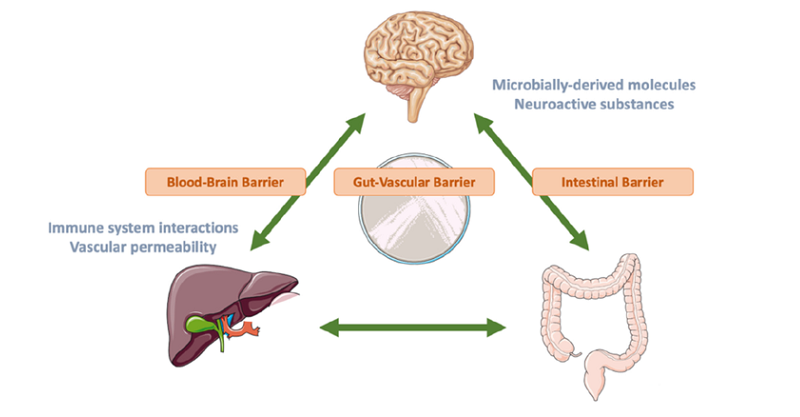
In the intricate web of human physiology, every organ plays a pivotal role, with interconnected relationships that ensure our well-being. When we speak of cognitive health, the brain naturally takes center stage. However, recent research indicates that the health of our liver—a powerhouse organ responsible for detoxification and numerous other functions — can significantly influence our cognitive abilities. This might seem surprising to many, but when we unravel the complexities of how our organs interact, the connection becomes clearer.
Contents
Understanding the Liver’s Functions
Often referred to as the body’s chemical processing plant, the liver is a vital organ with multifaceted roles that ensure our body’s optimal functioning. From filtering toxins to aiding in digestion, the liver wears many hats. To truly grasp the connection between liver health and cognitive degeneration, one must first delve into the essential functions of this crucial organ.
Detoxification
One of the liver’s primary roles is to detoxify chemicals and metabolize drugs. Every day, our body encounters a myriad of toxins—be it from the food we eat, the air we breathe, or the medications we take. The liver filters the blood coming from the digestive tract, detoxifying chemicals and producing bile to eliminate waste products. A compromised liver can lead to a build-up of toxins, which not only affects the liver itself but can also impact other parts of the body, including the brain.
Production of Vital Proteins
The liver is responsible for producing essential proteins that influence numerous processes in our body. These proteins include albumin, which helps maintain the balance of fluid in our bloodstream, and clotting factors, which aid in blood clotting. Moreover, the liver manufactures proteins responsible for transporting substances in our blood and fighting infections. Any impairment in these protein productions can have ripple effects throughout the body.
Energy Storage and Regulation
This powerhouse organ plays a key role in managing our body’s energy balance. It converts glucose into glycogen, a form of sugar storage, and releases it back into the bloodstream when energy is required. This not only ensures a consistent energy supply but also regulates our blood sugar levels. An unstable energy regulation can lead to mood swings, fatigue, and even cognitive issues.
Immune System Support
Often overlooked is the liver’s contribution to our immune system. It produces immune factors and removes bacteria from the bloodstream, ensuring they don’t spread to the rest of the body. A weakened liver can compromise our body’s ability to fight infections, leading to overall health degradation [1].
Cognitive Decline: A Brief Explanation
As we venture deeper into the intertwined relationship between liver health and brain function, it’s paramount to have a solid understanding of what cognitive decline entails. Cognitive functions are the array of mental abilities we utilize daily, encompassing memory, attention, language, problem-solving, and more. When these abilities wane, it can drastically affect one’s quality of life. Let’s delve into the intricacies of cognitive degeneration, its manifestations, and its primary causes.
Definition and Symptoms of Cognitive Decline
Cognitive decline, often synonymous with cognitive impairment, refers to the gradual loss of cognitive functions over time. While it’s natural for some cognitive functions to diminish as we age, significant cognitive decline can lead to severe conditions like dementia or Alzheimer’s disease. The symptoms of cognitive decline can vary, but some common manifestations include:
- Forgetfulness or memory lapses
- Difficulty concentrating or focusing
- Trouble making decisions or problem-solving
- Struggling with spatial skills, such as getting lost even in familiar surroundings
- Challenges in organizing thoughts or tasks
Recognizing these symptoms early can be crucial in managing or even reversing the progression in some cases.
Main Causes of Cognitive Degeneration
Several factors can contribute to cognitive decline. While age remains a dominant factor, other causes include:
- Neurodegenerative diseases like Alzheimer’s or Parkinson’s
- Vascular disorders, often resulting from conditions like strokes
- Traumatic brain injuries or concussions
- Chronic medical conditions, especially those that deprive the brain of necessary nutrients or oxygen
- Certain medications or treatments that might have cognitive side effects
It’s essential to note that while some causes might be genetic or unavoidable, many factors leading to cognitive decline are modifiable, presenting opportunities for prevention [2].
The Importance of Brain Health
Our brain is the command center of our body, overseeing every function, thought, and emotion. Maintaining its health is of utmost importance. Good brain health can lead to better decision-making, improved mood, sharper memory, and an overall enhanced quality of life. Furthermore, nurturing our brain can stave off cognitive decline and potentially delay the onset of more severe cognitive disorders.

The Direct Link Between Liver Damage and Cognitive Health
While the liver’s primary functions might seem distant from the realms of cognition and brain health, intricate pathways connect these two vital areas of our body. As researchers dive deeper into the world of organ interconnectivity, it’s becoming increasingly clear that liver damage can have direct and often severe consequences on our cognitive faculties. By understanding this direct link, we can better appreciate the importance of liver care in safeguarding our cognitive well-being.
Research Findings on Cirrhosis and Cognitive Impairment
Cirrhosis, a late stage of liver scarring caused by various liver diseases and conditions, has been the subject of numerous studies concerning its effects on cognitive health. Studies have shown that individuals with cirrhosis frequently exhibit cognitive deficits, even if they don’t showcase overt symptoms [3].
This condition, known as minimal hepatic encephalopathy (MHE), can significantly impact one’s quality of life, affecting day-to-day functions like driving, working, or even socializing. What’s alarming is that MHE often goes undiagnosed, as its subtle symptoms can be easily overlooked or attributed to other causes.
Hepatic Encephalopathy: Symptoms and Causes
Hepatic encephalopathy (HE) is a more severe form of cognitive impairment stemming from liver dysfunction. This condition arises when the liver can’t adequately remove toxins from the blood, leading to a buildup of these harmful substances in the brain. Symptoms can range from mild, such as slight confusion or tremors, to severe, encompassing disorientation, behavior changes, and even coma in extreme cases.
Several factors can trigger or exacerbate HE:
- A large protein intake, which increases the production of blood ammonia—a toxin the liver often processes.
- Infections or kidney problems, which can further hinder the body’s toxin removal mechanisms.
- Certain medications that suppress liver function or alter mental status.
Understanding and recognizing the symptoms of HE can be life-saving, as immediate medical intervention is crucial for this condition.
How Toxins Impact the Brain
At the core of the relationship between liver damage and cognitive health is the buildup of toxins. When the liver’s detoxification process is compromised, harmful substances, notably ammonia, can reach the brain, affecting neurotransmission and leading to symptoms of cognitive impairment. Prolonged exposure can cause lasting damage, emphasizing the need for early detection and intervention [4].

The Role of Ammonia, the Liver, and Brain Health
When discussing the influence of liver health on cognitive function, the topic of ammonia invariably surfaces. This simple compound, while naturally occurring in the body, becomes a significant concern when its levels go unchecked. Elevated ammonia levels can have a profound impact on the brain, offering a compelling insight into how a chemical imbalance in one part of the body can reverberate through our entire system.
The Liver’s Role in Ammonia Processing
Ammonia is primarily produced when proteins and amino acids are broken down in the gut. Under normal circumstances, the liver efficiently converts this ammonia into urea, a much less toxic compound, which the body then safely excretes through urine. This process is vital as even slightly elevated levels of ammonia in the blood can be harmful. A compromised liver, whether due to cirrhosis, acute liver failure, or other conditions, may lose its ability to convert ammonia efficiently, leading to its accumulation in the body.
Elevated Ammonia Levels and Brain Health
An excess of ammonia in the bloodstream is a cause for concern, primarily due to its detrimental effects on the brain. When ammonia reaches the brain, it can:
- Alter the brain’s energy metabolism, leading to energy deficits.
- Disrupt the blood-brain barrier, making the brain more vulnerable to other toxins.
- Interfere with neurotransmission, affecting how brain cells communicate.
The culmination of these effects can lead to symptoms ranging from confusion and fatigue to severe cognitive impairment and, in extreme cases, coma or death.
Clinical Observations of Ammonia-Induced Cognitive Decline
Clinicians have long observed the effects of elevated ammonia on cognitive functions. Patients with conditions like hepatic encephalopathy often present with impaired attention, memory deficits, and reduced motor skills—all hallmark signs of ammonia’s neurotoxic effects. Moreover, there’s growing evidence suggesting that even subtle elevations in blood ammonia, which might not result in overt clinical symptoms, can still subtly impair cognitive functions. This underscores the need for regular screening, especially in individuals with known liver conditions [5].
Other Liver-Related Factors Influencing Cognitive Health
While the role of ammonia stands out as a significant bridge between liver dysfunction and cognitive decline, it’s by no means the sole connector. The liver, being a multi-functional powerhouse, interacts with various other bodily processes that can indirectly influence our cognitive faculties. Exploring these connections further illuminates the intricate relationships between our body’s systems and emphasizes the ripple effects that can emanate from a singular source.
Inflammation and the Brain
The liver plays a key role in regulating inflammation in the body. Chronic liver conditions often lead to persistent inflammation, which doesn’t just stay localized to the liver. Systemic inflammation can affect various body systems, including the brain.
Inflammation in the brain, often termed neuroinflammation, has been linked to various cognitive disorders, including Alzheimer’s disease. Pro-inflammatory molecules, when present in elevated levels, can interfere with neurotransmission, impede neuron regeneration, and even lead to neuron death.
The Liver’s Role in Cholesterol Metabolism
Cholesterol, often vilified in health discussions, is vital for our body’s functions, especially in the brain. The liver plays a central role in regulating cholesterol levels in the bloodstream. When liver function is compromised, cholesterol metabolism can go awry.
High cholesterol has been linked to an increased risk of developing Alzheimer’s disease and other forms of dementia. Additionally, irregularities in cholesterol management can lead to the buildup of plaques in the brain, further disrupting cognitive functions.
Blood Flow and Oxygen Supply
The liver helps regulate blood flow and ensures that our organs, including the brain, receive oxygenated blood. Liver diseases can sometimes lead to vascular issues, causing reduced or irregular blood flow to vital organs.
Reduced blood flow to the brain can deprive it of essential oxygen and nutrients. Over time, this can lead to cognitive decline and heighten the risk of conditions like vascular dementia.
Nutrient Metabolism and the Brain
The liver is instrumental in metabolizing and storing various nutrients, including vitamins, minerals, and glucose. These nutrients are vital for brain health. For instance, the liver helps regulate glucose levels in the blood, which the brain uses as a primary energy source. Any disruption in this supply can impair brain functions.
Deficiencies in certain vitamins and minerals, often stemming from poor liver metabolism, can impact cognitive functions. For instance, vitamin B12 deficiency, sometimes linked to liver disease, can result in memory problems and confusion.
References
[1] Regulation of mild cognitive impairment associated with liver disease
[2] Liver fibrosis linked to reduced cognitive ability and brain volume
[3] Nonalcoholic fatty liver disease is associated with cognitive function in adults
[4] Loss of brain function – liver disease
[5] What is the liver-brain axis, and does it play a role in dementia?

